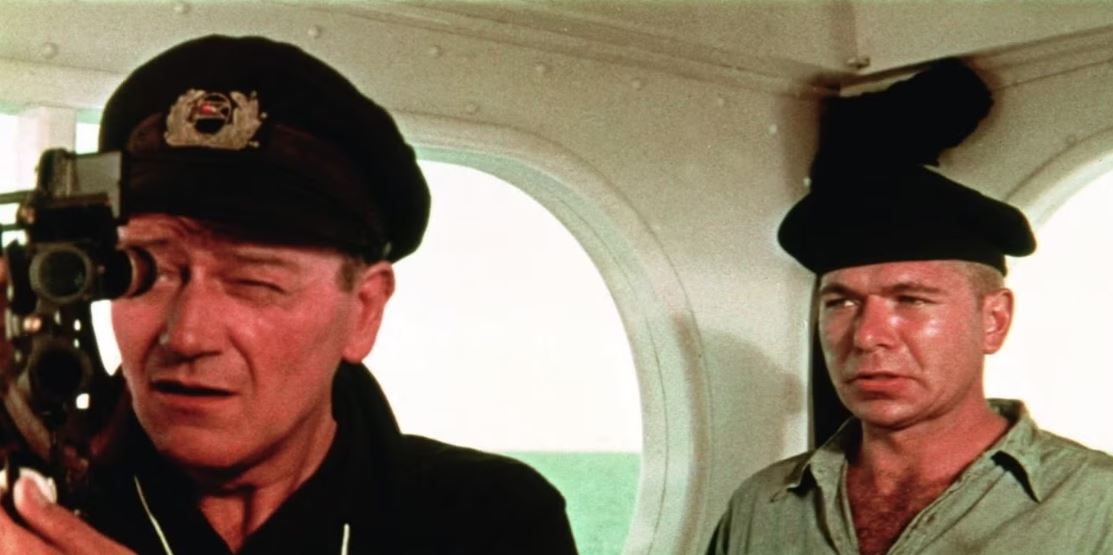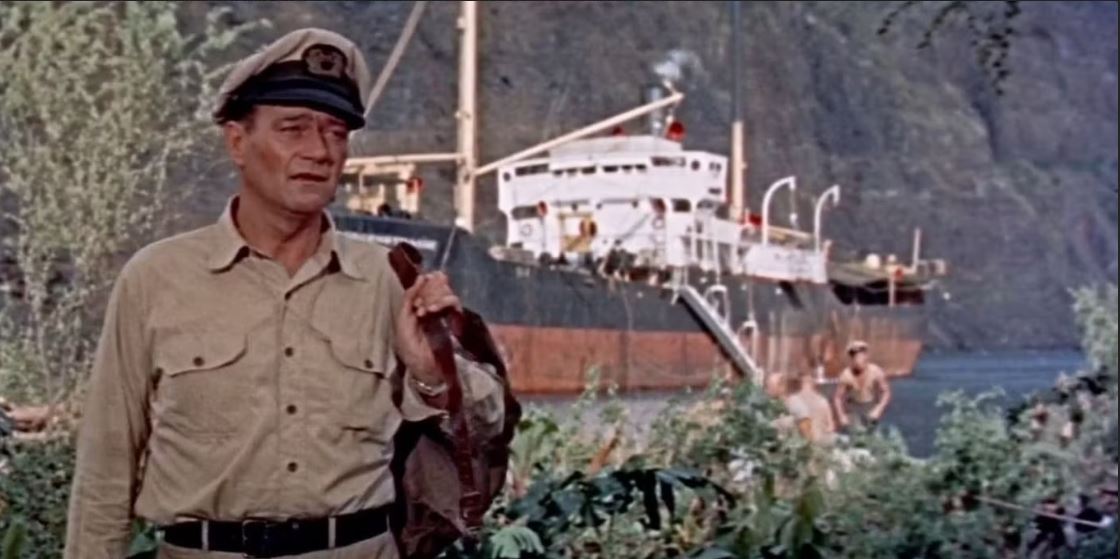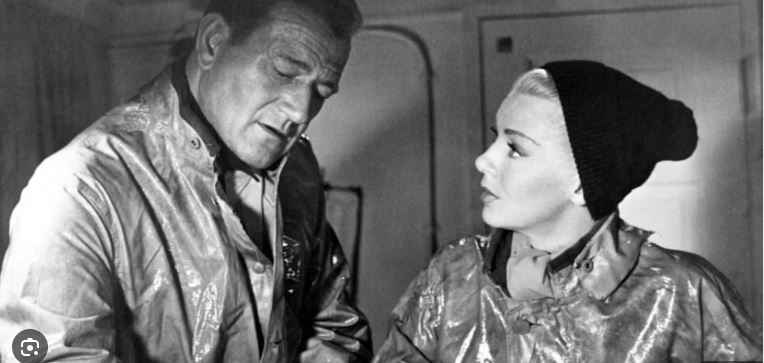John Wayne’s career is often viewed through the lens of his outspoken nationalist ideals, which influenced not only his public persona but also his choice of roles. His strong beliefs made him a divisive figure in the politically charged climate of mid-20th-century Hollywood. It wasn’t uncommon for Wayne to turn down parts that he deemed unpatriotic. He famously refused an offer to lead the cast in High Noon, for which his replacement, Gary Cooper, snagged an Academy Award. Similarly, when the producers of All the King’s Men came knocking, Wayne couldn’t stand the script that clashed with his political views, and again, Broderick Crawford walked away with the golden statuette for playing the iconic Willie Stark. Wayne passed on many roles for his beliefs, and collaborators often avoided political discussions with him to sidestep conflict.
However, there remains a debate about whether Wayne was a student of his own teachings. Critics often spark this debate over speculation around his failure to enlist during World War II. Some have argued that his focus on advancing his career overshadowed his patriotic rhetoric. In John Farrow’s 1955 World War II film The Sea Chase, it is quite intriguing to see him take on a role that places him opposite his own pro-nationalist views. Wayne portrays a German naval captain, Karl Ehrlich, who is in charge of the ship “Ergenstrasse.” Upon Britain’s declaration of war on Germany, Karl, who, no surprise, is an anti-Nazi crusader, makes the bold decision to return his crew safely to Germany from Sydney, Australia, knowing too well that he would have to outsmart the Allied forces at sea to succeed.
John Wayne Defies Nationalism in ‘The Sea Chase’

Wayne’s portrayal of Karl Ehrlich dives into the nuances of patriotism. As the captain of a German merchant ship caught in the throes of World War II, Ehrlich’s commitment to his crew supersedes his allegiance to the Nazi regime. Even though he loves his country, he refuses to defect to the Allies when presented with the opportunity. But, simultaneously, he is not willing to fight alongside the Nazis, as he despises their political leadership. As the Allies and the Axis Powers wage war, Karl experiences his own internal turmoil throughout his journey back home. He is obsessed with doing what he believes is right, even when it doesn’t serve him or borders on ignorance. For instance, he insists on arraigning a fellow German who was aboard his ship to the Nazi courts in Germany for murdering British civilians, even though he knows the odds aren’t in his favor. When caught up in a propaganda spat between his compatriots and their adversaries, he must choose between duty and conscience. Wayne’s character’s arc is strengthened by the romantic subplot with Lana Turner’s Elsa Keller, a conflicted woman spying for the Nazi regime. Their relationship is about longing and loss, as well as a test of the wartime moral dilemmas they face.
The Sea Chase also delves into broader themes that war brings on board, such as betrayal, lost friendships, and fatal romance. John Farrow has a strong supporting cast that gives credence to the script’s memorable supporting characters. Among these are decent performances by David Farrar, who plays Karl’s longtime friend separated by the war at hand; Lyle Bettger also offers a commendable showing as a Nazi adherent who often clashes with Karl; as well as Paul Fix, who lends his vast experience that saw him not only become Wayne’s mentor but also share the screen with Wayne in at least 26 films.
John Wayne Criticized Director John Farrow for ‘The Sea Chase’s Lost Potential

Despite The Sea Chase’s layered narrative, Wayne was outspoken in his dissatisfaction with director John Farrow’s handling of the adaptation.The film is based on Andrew Geer’s novel but deviates significantly from the source material in what Wayne sees as a dilution of the moral ambiguity of his character. In the book, Karl is a much more complex anti-Nazi rebel than Wayne’s character, whose depiction is obsessed with his anti-Nazism, ostensibly to align with Wayne’s star persona and Cold War-era sensibilities. In John Wayne Talks Tough: An Interview by Joe McInerney, Wayne is quoted saying of Farrow:
“He (Farrow) did direct ( The ) Sea Chase and prove to me that he should not be put in charge of a producer-director position. He failed to tell the good story that was in the book. But now we’re talking about a matter of opinion, and that’s only my opinion. For some, he may be considered a fine director. ” – John Wayne.
However, The Sea Chase retains redeeming qualities with its maritime setting, with beautifully rendered shots sweeping the open sea and the adventures of the crew as they navigate treacherous sea waters and desolate islands. Teeming with tense naval pursuits and stormy sequences, The Sea Chase is worth a second look.
